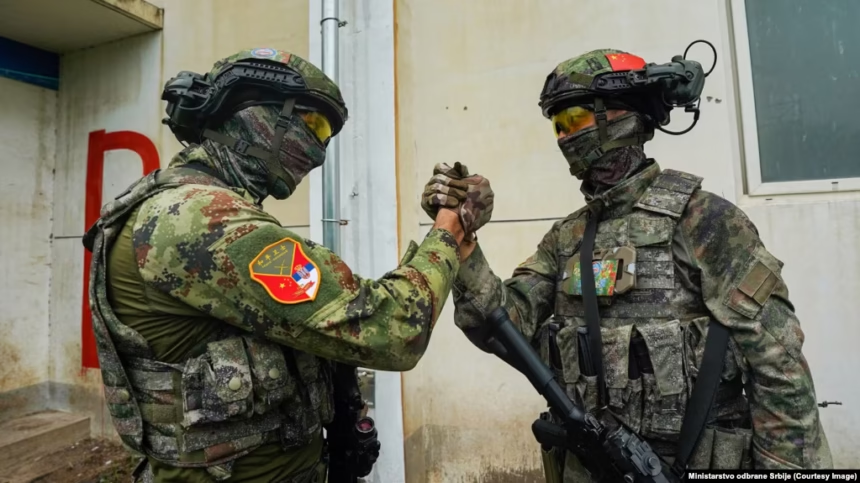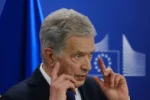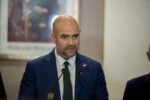A ten-day joint military drill between Serbia’s special forces and China’s army in northern China’s Hebei Province has sparked fresh tensions between Belgrade and Brussels, highlighting Serbia’s deepening ties with Beijing despite its official bid to join the European Union.
The exercise, named “Peacekeeper 2025,” marks the first time Serbia and China have conducted a joint military training — a milestone that experts say confirms Serbia’s steady pivot towards China and Russia, even as it remains formally committed to EU accession.
A First of Its Kind
The drill, held in late July, comes just a year after Serbia’s military held similar maneuvers with Belarusian forces near NATO’s eastern border — moves that have repeatedly frustrated Brussels and Washington.
Daniel Serwer, professor at Johns Hopkins University and a former U.S. State Department envoy for the Balkans, told Radio Free Europe that the exercise is “further proof that Serbia is moving closer to Beijing, just as it has to Moscow.”
“Those who believed President Vučić would wholeheartedly embrace the West have been proven wrong,” Serwer said.
An EU Candidate Drifting East
Officially, Serbia’s long-term strategic objective remains EU membership. However, under President Aleksandar Vučić, Belgrade has increasingly emphasized its “steel friendship” and “strategic partnership” with China.
The Serbian Ministry of Defense described the drill as a major boost to military cooperation, making Serbia the only EU candidate country currently conducting military exercises with China’s People’s Liberation Army.
Drones, Missiles — and New Concerns in Brussels
The “Peacekeeper 2025” drill focused heavily on combat drones, reflecting Serbia’s expanding arsenal of Chinese military technology. In recent years, Serbia has acquired Chinese CH-92A drones, the FK-3 surface-to-air missile system, and additional CH-95 drones — making it the first European country to operate these Chinese systems.
Brussels and Washington have repeatedly raised concerns about Serbia’s military shopping spree in China, warning of long-term risks and potential security gaps within Europe’s defense framework.
Warnings Ignored
When the drills were announced earlier this month, an EU spokesperson told Radio Free Europe that “Serbia must refrain from actions and statements that run counter to the EU’s foreign policy positions.” But Serbia ignored the warning.
Since December 2021, Serbia has not opened any new negotiating chapters in its EU membership talks — partly due to its refusal to join EU sanctions against Russia following the invasion of Ukraine in 2022.
Xi’s Letter: Symbolic Solidarity
In a parallel diplomatic move, Chinese President Xi Jinping sent a personal letter to President Vučić to thank him for his unwavering support on issues of “core interests and major concerns” for China — an unmistakable signal that Beijing sees Serbia as a valuable ally in Europe.
Taiwan and Kosovo: A Geopolitical Parallel
Professor Serwer notes that China’s support for Serbia’s claim over Kosovo mirrors Serbia’s support for China’s “One China” policy rejecting Taiwan’s independence.
“China’s ambition to reunify with Taiwan has an obvious parallel with Serbia’s ambition to ‘return’ Kosovo,” Serwer said.
Serbia relies on China and Russia’s backing in international forums to oppose Kosovo’s independence — just as it backs China’s claims over Taiwan.
Washington’s Quiet Response
While the U.S. has repeatedly cautioned Serbia about purchasing Chinese weapons, Serwer doubts Washington will respond strongly to the drills.
“I don’t think the U.S. will take any major steps. They have bigger problems elsewhere,” he said.
Earlier this year, President Vučić abruptly cut short a visit to Florida, citing health problems, after he failed to secure a planned meeting with U.S. President Donald Trump.
China’s Gateway into Europe
Beyond the military dimension, China’s presence in Serbia is deeply economic. Chinese companies control major infrastructure projects in the country — often awarded without open tenders — and China is now Serbia’s largest source of imports, valued at €5.13 billion in 2024 alone.
Serbia has positioned itself as China’s “gateway” for economic expansion into Europe, securing large investments and loans that further bind Belgrade to Beijing’s orbit.
A Strategic Choice
The message behind “Peacekeeper 2025” is clear: while Serbia remains officially on the path to EU integration, its real alliances — political, economic, and now military — increasingly lie in the East.
“Serbia is sending an unmistakable signal that it will not align its foreign policy with the EU,” Serwer concludes.
As tensions grow between Brussels, Beijing, and Moscow, Serbia’s balancing act may soon force it to choose: Europe or Eurasia.







